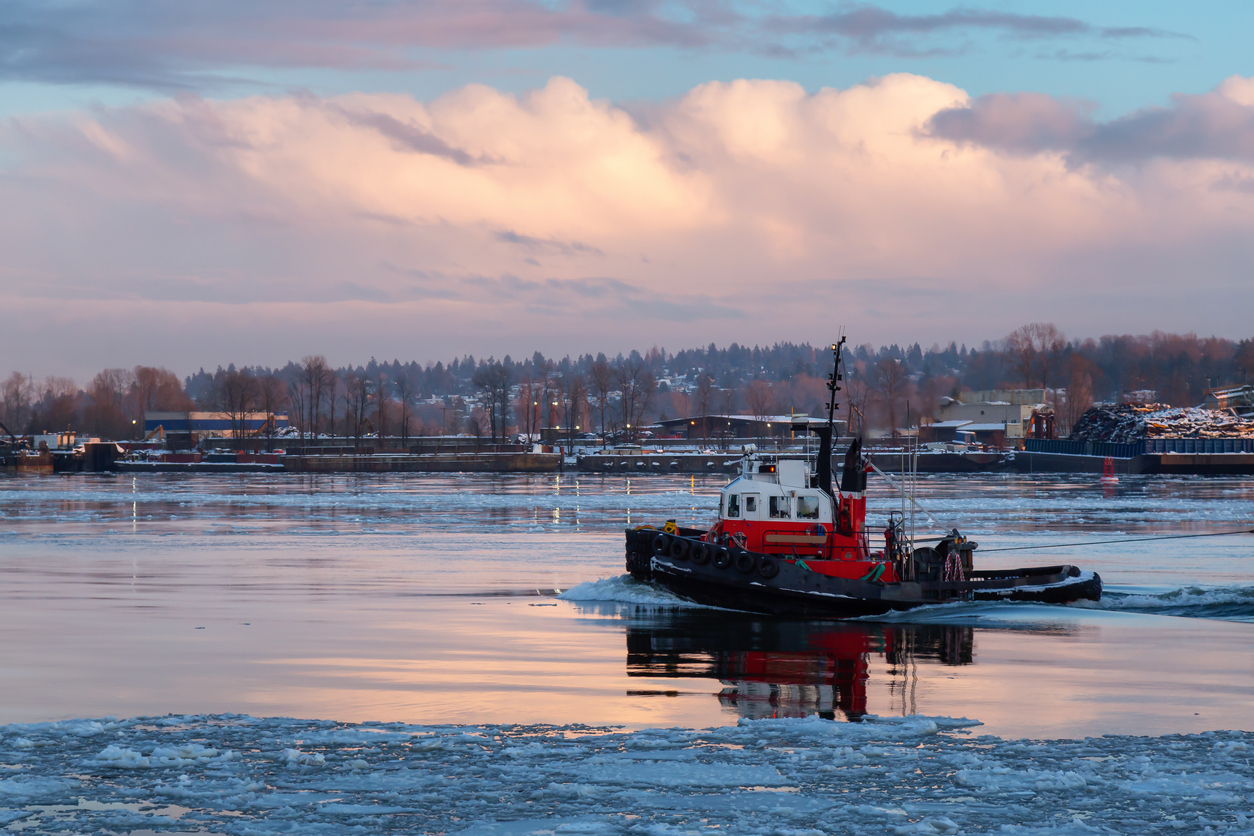By Trend Diesel
During the colder months those operating commercial vessels like tugs, workboats, and fishing boats, cold temperatures pose serious risks. If your commercial marine engine and equipment aren’t adequately protected, freezing temperatures can lead to costly repairs, operational downtime, and significant financial losses. A small oversight—like neglecting antifreeze maintenance—can result in frozen systems and unexpected breakdowns that you simply can’t afford.
Why Winterization is Critical
Cold weather affects diesel engines, cooling systems, and fuel lines in ways that can lead to catastrophic failure. Ice formation in coolant lines, thickened fuel, and battery inefficiencies can all contribute to unexpected equipment failure. Ensuring your vessel is winter-ready isn't just about preventing inconvenience; it’s about protecting your investment and ensuring uninterrupted operations.
Key Steps to Winter-Proof Your Vessel
1. Maintain and Monitor Your Antifreeze Levels
Your vessel’s antifreeze is its first line of defense against freezing temperatures. Over time, coolant can break down, lose its protective properties, or become contaminated. Ensuring you have premium antifreeze products specifically designed for marine engines will help maintain proper engine temperature regulation and prevent freezing or overheating.
2. Inspect and Service Your Engine and Cooling Systems
Regular inspections before winter sets in are crucial. Components like water pumps, thermostats, and cooling hoses should be checked for wear and tear. A minor leak in warm weather might not seem like a big deal, but in freezing conditions, it can quickly turn into a major failure.
3. Fuel System Protection
Cold temperatures can cause diesel fuel to thicken or form wax crystals, leading to clogged filters and fuel starvation. Using winter-grade diesel fuel and additives can help prevent gelling. Additionally, keeping your fuel tanks full reduces condensation buildup, which can introduce water into your system and lead to freezing.
4. Battery Maintenance
Cold weather significantly reduces battery efficiency. Before winter, ensure your battery is fully charged, connections are clean, and corrosion is removed. Investing in a battery heater or insulator can help maintain battery life and reliability in frigid temperatures.
5. Thoroughly Inspect Your Vessel’s Exterior and Safety Equipment
Beyond engine concerns, ice buildup and freezing conditions can affect hydraulic systems, deck machinery, and safety equipment. Check for cracks or weaknesses in hull integrity, ensure bilge pumps are operational, and verify that all safety gear—such as life rafts, survival suits, and emergency lighting—is winter-ready.
How Trend Diesel Can Help
Protect Your Investment and Stay Operational This Winter
Harsh winter conditions don’t have to mean costly breakdowns and downtime. By taking the right precautions and working with experienced professionals, you can keep your vessel in peak condition throughout the colder months.
Don’t wait until it’s too late—ensure your commercial vessel is fully winterized and ready to take on the season.


